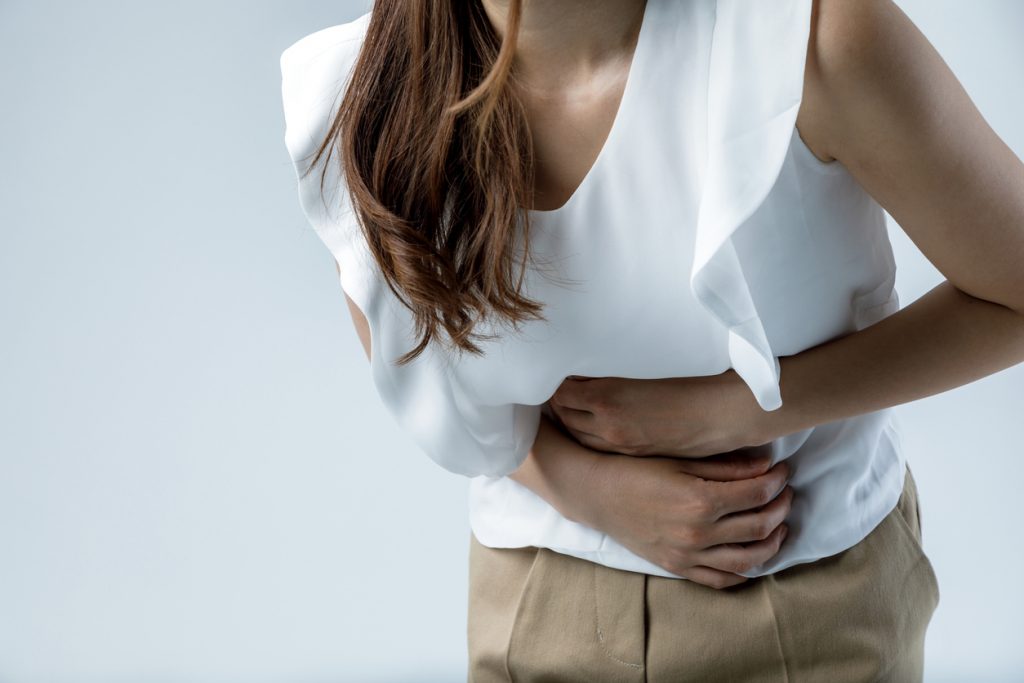Say no to norovirus: 5 ways to beat the bug

young woman having a stomach ache
Norovirus, also known as the winter vomiting bug, is highly infectious and causes vomiting and diarrhoea. Norovirus is easily transmitted through contact with infected individuals and any surfaces or objects which have been contaminated with virus shed by these individuals.
Norovirus activity has started earlier this winter and laboratory confirmed cases are higher than average for this time of year. There have been 104 outbreaks reported since July 2019. Of those 104 outbreaks 92 or 88 per cent resulted in ward or bay closures and 71 of which were laboratory confirmed as norovirus.
5 ways to beat the bug:
- Stay at home if you are experiencing norovirus symptoms. Do not return to work or send children to school until 48 hours after symptoms have cleared. Also avoid visiting elderly or poorly relatives, particularly if they are in hospital.
- Wash your hands frequently and thoroughly with soap and warm water. Alcohol hand gels don’t kill norovirus.
- When an infected person vomits, the droplets contaminate the surrounding surfaces. A bleach-based household cleaner or a combination of bleach and hot water should be used to disinfect potentially contaminated household surfaces and commonly used objects such as toilets, taps, telephones, door handles and kitchen surfaces.
- If you are ill, avoid cooking and helping prepare meals for others until 48 hours after symptoms have stopped, as norovirus can be spread through food contaminated by the virus when food is handled by symptomatic people/infected individuals contaminated food.
- Wash any contaminated clothing or bedding using detergent and at 60°C, and if possible wear disposable gloves to handle contaminated items.
Symptoms of norovirus include sudden onset of nausea, projectile vomiting and diarrhoea but can also include a high temperature, abdominal pain and aching limbs. These symptoms typically last about 24 to 48 hours without medical intervention, norovirus cannot be treated with antibiotics.
Do not visit your GP surgery or local hospital while symptomatic and until 48 hours after the symptoms have stopped. If you are concerned contact NHS 111 or talk to your GP by phone.
The incubation period of norovirus is 10-48 hours, which is the time between catching the virus and developing symptoms. Individuals can pass on norovirus or shed the virus onto surfaces and objects during this period but are most infectious while symptomatic.
Elderly individuals, young children and those with weakened immune systems are more likely to develop more severe symptoms which last longer and are therefore most at risk of becoming dehydrated. Dehydration occurs because your body is losing water and salts from vomiting and diarrhoea, so it is important to drink plenty of fluids to avoid this.
Norovirus can be caught all year round and outbreaks are most common in settings where individuals have close contact such as hospitals, nursing homes or schools. Therefore, when norovirus cases increase during the winter period so do the number of these kinds of outbreaks.
Rotavirus
Parents can easily confuse the symptoms of norovirus and rotavirus. Rotavirus is another highly infectious stomach bug that can also cause diarrhoea in young children, though less common symptoms can include vomiting, fever and stomach ache.
Unlike norovirus, there is a vaccine for rotavirus. An oral vaccine against the infection is given as to babies aged 8 and 12 weeks alongside their other routine childhood vaccinations.
Since its introduction into the vaccination programme, the rotavirus vaccine has prevented more than 70% of cases.
Whilst norovirus spreads easily, catching it is not inevitable. With the appropriate precautions it is possible to remain healthy whilst people at work or at home are ill. Practicing good hygiene and avoiding contact with others while infectious are at the core of protecting yourself and others from the spread of the virus.
View original article
Contributor: Blog Editor

